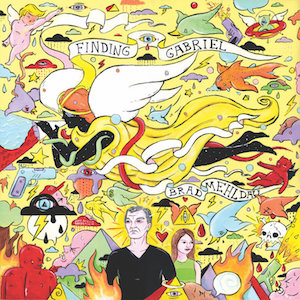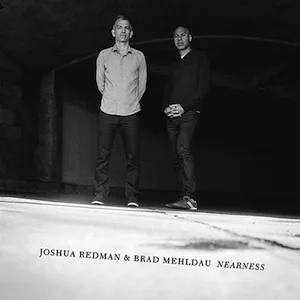One of the most popular stylists in contemporary jazz, pianist Brad Mehldau, releases a challenging record, stepping away from conventional jazz paths as he explores new directions, deliberately looking for something new. Expanding vistas into multiple musical arenas that not merely jazz and classical, Mehldau creates a hypnotic concoction where he explores alternative textures and sounds with sometimes-crawling, sometimes-kinetic modernistic beats, multi-layered vocalizations, and an artsy fusion of electronica-induced vibes and modern creative fervor. Motivated by the Holy Scriptures and today’s political destabilization, the pianist brings to light 10 new compositions recorded over an 18-month period, some of them featuring illustrious guests such as drummer Mark Guiliana, trumpeter Ambrose Akinmusire, saxophonist Joel Frahm, violinist Sara Caswell, and vocalists Kurt Elling and Becca Stevens, among others.
Regardless the fantastic crew of musicians, Mehldau tackles three accompanying himself: “Born To Trouble”, a romantic, slightly gospelized pop-ish track showing deep love for melody and incorporating a minimalistic beat later turned into a regular 4/4 backbeat; “O Ephraim”, during which he poses poetic classical expressions on the Musser Ampli-Celeste and complements it with jazz improvisation on Fender Rhodes; and the title track, which closes out the album with piano, synth, mellotron, Hammond-B3, drums, percussion, and vocals.
Among the highlights is the opening tune, “The Garden”, which initially foregrounds an atmospheric gospelized synth wave tied to a minimalistic beat that creates urgency. Beautifully layered, the three-piece vocal explorations immerse us in a sonic cloud that is simultaneously ethereal and petrifying, just as Philip Glass’s “Koyaanisqatsi”. This all happens before Guiliana’s drums go berserk, the inky throb of the bass notes make their way, and an amazing solo by Akinmusire reaches the skies. The trumpeter also blows on the politically charged “The Prophet Is a Fool”, another peak, but the star here is Frahm, whose seismic tenor outpour is filled with in-and-out movements. If prior to his intervention we could ride the vigorous rocking rhythm, the dirty funky bass a-la Beastie Boys, and the chilled-out hip-hop piano moves reminiscent of Robert Glasper, then, after that, we hear a tragicomic vocal sample saying: 'build that wall!', followed by a breakbeat avalanche.
Although both immersed in ambient waters, “Striving After Wind” and “Deep Water” reveal fine singularities. The former is a synth-infused, electronica-inspired piece with breakbeats, while the latter sinks in downtempo, featuring a string trio led by Caswell’s violin as well as Stevens’ rigorous voice. The latter’s vocal presence also captures the listeners’ attention on “Make It All Go Away”, a spacious combination of new age, funk/soul, and trip-hop, but it’s Kurt Elling who shines by the end, pulling the song into a crescendo. These moods contrast with the progressive trance projected by “St. Mark is Howling in the City of Night”, where chamber-esque sketches are drawn atop the syncopated groove in seven. Rock-inflected movements on the lower register bolster the scenario.
Roll up your sleeves and strap in for this unprecedented work by Mehldau, likely his most conceptually knotty and meticulously composed yet.










